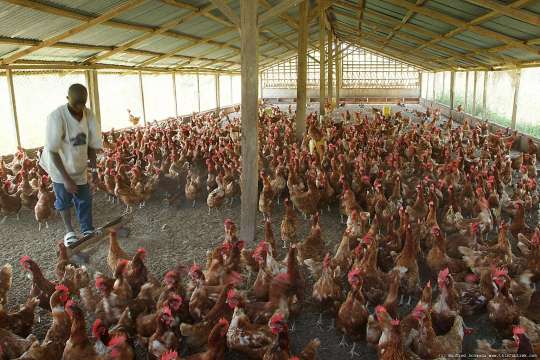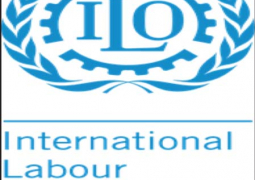
Many Gambian youth have begun to realize that with good self-initiated projects they can lead a fulfilling life on their home soil without embarking on perilous Mediterranean journeys to Europe.
Poultry farming is a popular choice in the West African country, attracting migrant returnees and other professionals who quit jobs to cash in on the opportunities in the thriving market.
Muhammed Alasan Bah, 21, imprisoned and repatriated from the Libyan capital Tripoli a few months ago, had joined the industry. The venture has proven successful for him.
Bah was met at his poultry farm recently where he rears broiler chickens and sells them when they are matured.
He said life had been unbearable for him as a breadwinner since he lost his father in 2004, which finally led to his trip to Libya.
“My road to Europe did not materialize even though I had already paid the boat to cross to Italy.
My payment coincided with winter season and we were advised to wait.
Unfortunately, in that interval we were attacked and imprisoned,” he recalled.
He said he and others were beaten and maltreated in many forms while being held in the detention center.
He was deported to The Gambia in March this year with the help of the International Organization for Migration (IOM).
Bah said he refused to let his future be distracted by the obsession of Europe any more.
It is while on the plane back home that he decided to give poultry business, he said.
“I realized Europe is not the only place for one to make it in life. When they informed us that we will be deported, I appreciated it because I was absolutely suffering,” he said.
“I preferred coming back even I will continue eating raw rice but without a threat to my life,” the young man added.
To start up the business, his brother supported him with a sum of 7,750 Dalasi (168 U.S. dollars) which he used to buy 150 broiler chicks. His business was set up one month after his return.
“I gained a profit of 16,000 Dalasi (347 dollars) excluding the expenditures in June. The broilers are fast because I started it in April and sold them in June.
I bought 200 in June again as the second batch of chicks. So far if you calculate my profits from the sales of three batches in seven months it stands at almost 55,000 Dalasi (1,195 dollars),” he happily explained.
Bah, who also resumed his Electrical Installation course at the Gambia Technical Training Institute upon his return, said he has already bought a piece of land at a coastal settlement of Sanyang to expand his project.
Rohey Bah said she quit her professional teaching job at a Senior Secondary School level as income from chicken rearing is higher.
She revealed that she started the business with a sum of 4,000 Dalasi (86 dollars) to buy chicks with the support from her husband.
Commenting on the story, Baboucarr Kebbeh, CEO of the Gambia Youth Chamber of Commerce, said poultry farming has been one of the fastest business ventures in The Gambia in recent years. He said young people have realized that they do not need a million dalasi to start a business; neither do they need huge loans.
“They just need a soft start-up capital of D3000-D7000 (65 to 152 dollars) to be successful. This has been the perception we inculcate in their mindsets.
“The Gambia’s business climate is so favorable and this is what our young people have realized.
I’m of the opinion that poultry investment can reduce the 38 percent of youth unemployment rate in The Gambia,” he said.
Kebbeh said GYCC as the umbrella body of youth entrepreneurs in the country has mobilized young African entrepreneurs to train and mentor Gambian youth.
“We will continue to spot out aspiring and potential young entrepreneurs to access information on market opportunities, grants and loans because we believe this must be the way out to change the mindsets and make New Gambia the Gambia we want,” he said.
Source-Gambia Youth News





